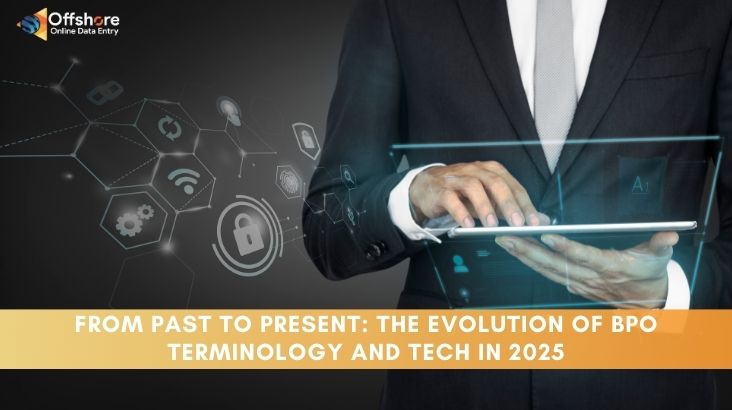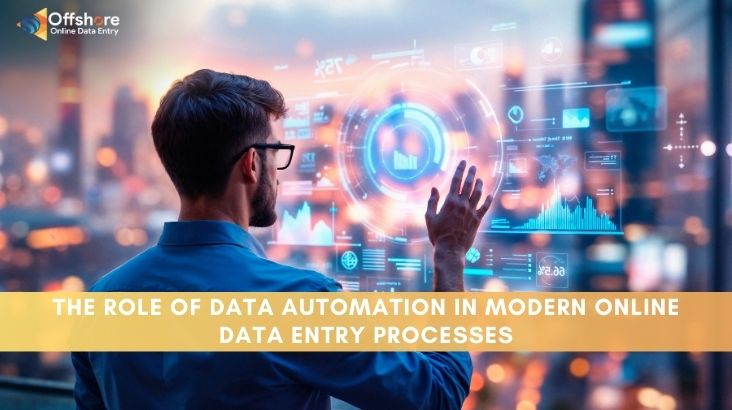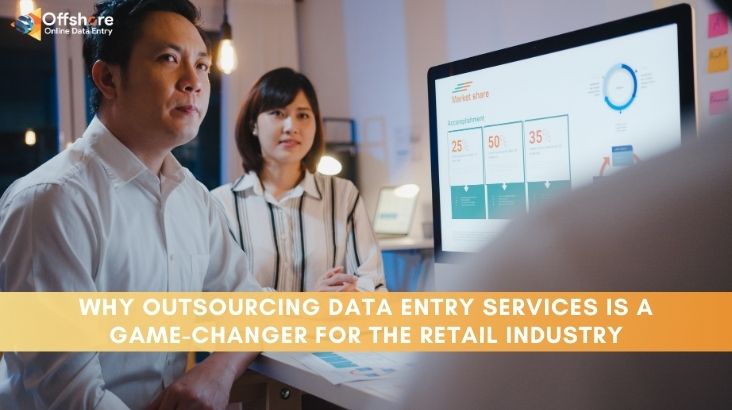From Past to Present: The Evolution of BPO Terminology and Tech in 2025
The business process outsourcing industry has transformed significantly, from basic call centers to AI-integrated and highly automated solutions. 2025 is a year that marked the golden era of BPO with advancements in technologies such as artificial intelligence, machine learning, and cloud computing. Moreover, the adoption of technologies resulted in the evolution of modern BPO terminology. Today, BPO has evolved into a strategic partner to meet the dynamic needs of global businesses. This blog lets you understand how technologies and terminologies in BPO have shifted as of 2025, and how the industry is progressing with the shift.

The Evolution of BPO Terminology
As mentioned before, the rapid adoption of technologies and modern practices has paved the way for a shift in terms that are used in the industry. The following are some of the newly rolled out terms you must be aware of in 2025.
- Hyperautomation – Hyperautomation refers to automating as many processes as possible through advanced technologies such as artificial intelligence (AI), machine learning (ML), and robotic process automation (RPA). This term has gained prominence as it uses the most advanced tools. Hyperautomation aims to streamline operations and improve efficiency across different functions.
- Customer Experience (CX) – Formerly, BPO services were evaluated by the cost efficiency they offer. However, in 2025, the emphasis has shifted to customer experiences. BPO service providers now invest heavily in technologies and training to ensure personalized and seamless customer interactions. The term, in essence, refers to the customer lifecycle.
- Human-in-the-Loop (HITL) – This term refers to the combination of humans and technologies. Rather than being completely automated, HITL requires human intervention for decision-making processes. Here, human employees are not just observers but are wholly involved in processes
- Digital BPO – Digital BPO refers to the use of digital tools like AI, ML, and other automation technologies to enhance the efficiency and effectiveness of business processes. It goes beyond traditional manual BPO by leveraging technology to automate tasks, improve accuracy, and provide real-time data for decision making.
- Intelligent Process Outsourcing (IPO) – This term denotes the combined action of artificial intelligence (AI) and robotic process automation (RPA). IPO automates and streamlines business processes seamlessly, making it a key driver of business transformation.
- Co-sourcing – Outsourcing is delegating back-office functions to an external service provider. Co-sourcing is an outsourcing strategy that involves the collaboration of external vendors with internal staff. It is, in fact, a middle ground between outsourcing and insourcing.
Technological Advancements in BPO
- Artificial Intelligence – Today’s BPO is all about automation, and BPO providers increasingly leverage technologies such as AI. These technologies can analyze vast datasets, perform repetitive tasks, and provide insights for decision-making. Furthermore, AI capabilities enhance accuracy, reduce turnaround times, and streamline operations.
- Cloud Computing – BPO service providers have shifted to cloud infrastructure to store and manage data remotely. This is because cloud solutions offer scalability, flexibility, and seamless remote accessibility. With such capabilities, BPO providers can ensure seamless service delivery, data security, and collaboration across various geographical boundaries.
- Predictive Analytics – Predictive analytics tools enable BPO providers to forecast trends, customer behavior patterns, and the potential challenges that may arise. Moreover, by foreseeing customer needs, companies can tailor services, address issues, optimize processes, and thereby enhance client satisfaction considerably.
- Omnichannel Communication – Modern BPO services support versatile communication channels. This includes email, text, voice chat, and social media. Omnichannel communication is a strategy that enables organizations to provide a unified and consistent customer experience across all touchpoints and channels. This approach ensures seamless customer interactions, regardless of the platform used.
- Voice Recognition – Voice recognition has significantly improved the BPO industry. From intelligent voice response systems to voice-to-text conversion capabilities, advancements in voice recognition enhance self-service options and offer faster resolutions. Moreover, natural language processing (NLP) technology can analyze the tone, sentiments, and emotions of the customer and improve customer satisfaction.
- Unified Communication as a Service (UCaaS) – UCaaS platforms manage internal communications and interactions. They consolidate multiple communication tools for voice calls, video conferencing, messaging, and file sharing into a single cloud-based system. In BPO firms, UcaaS streamlines internal collaborations and client communication to enhance hybrid and remote environments.
An Outline of the 2025 BPO Landscape
The BPO landscape of 2025 speaks a different language, combining new technologies. The industry is becoming an AI-first ecosystem, leveraging predictive analytics and intelligent automation capabilities. This minimizes human intervention and maximizes business efficiency. Moreover, there is a rapid shift in the role of traditional calling agents into AI trainers and oversight specialists. The agents are upskilling themselves for more productive roles to manage complex scenarios that require human judgment.
Sustainability becomes a key differentiator. Leading BPO firms have adopted green data centers and carbon-neutral operations to meet eco-conscious customer demands. In fact, the shift in terminology and technology in the BPO realm signals that BPOs are not just back-office service providers – they are strategic partners who drive business efficiency.
The Bottom Line
The ongoing and emerging terminology and technology are positively reshaping the industry. It is clear that AI, automation, and similar technologies in 2025 are rewriting the entire industry. Organizations still measuring BPO success based on hourly labor and lower costs are missing the real metrics that matter in 2025. In fact, the winners are not those who outsource; they are those who collaborate with BPO firms that offer intelligent operations. The future only supports those who tackle the language of technology. So, stay updated on emerging terminology and technologies in BPO.
Future-proof your back office journey by collaborating with a trusted BPO partner. Contact us at [email protected] for inquiries and collaborations.




